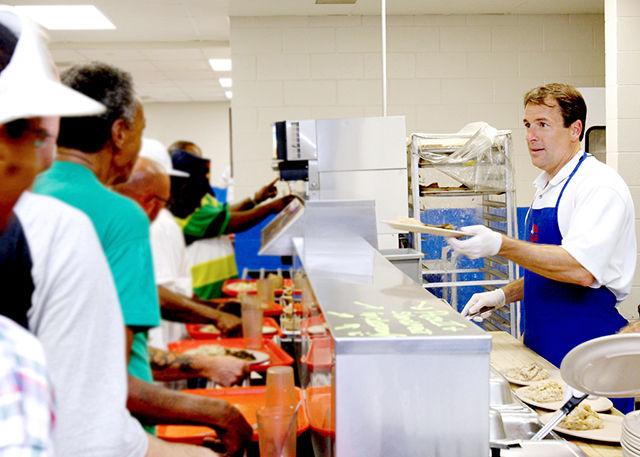
Contributed by David C. Fitzpatrick
On the heels of November, Homelessness Awareness Month, and as temperatures drop, finding a place for Wake County’s more than 1,100 homeless people is increasingly imperative. That number is decreasing with help from organizations such as Healing Transitions and Pan Lutheran Ministries (PLM) Families Together.
David Fitzpatrick, a teaching assistant professor in the Department of Social Work at NC State, teaches a class about hunger and homeless research methods. He has been involved in Healing Transitions for more than 11 years. Healing Transitions is a shelter and long-term sobriety program. The building is located just off the south side of Centennial Campus and is typically filled to capacity; that’s 280 beds with another 60 people on the waiting list.
The program is progress- and cooperation-based, meaning that the harder an individual works and more serious they are about cleaning up their life, the more benefits they receives and more comfortable the living conditions become.
According to Fitzpatrick, if a homeless individual comes to Healing Transitions and completely finishes the program, he will leave sober, with a job, a place to live, and a 70 percent chance that he will still be sober one year later.
“That high number is due to the strong community and social aspects the program offers,” Fitzpatrick said. “Healing Transitions’ success is due to its peer lead and socially based nature; it isn’t run by hired professionals.”
A similar organization in Raleigh is PLM Families Together. The nonprofit provides short-term housing and rehousing support for homeless individuals with a spouse and children.
“Everything we do centers on the most basic and important need that a family has: a home. We work hard to empower families and assist them in their move from homelessness back to independent life in the community,” PLM Families Together executive director Lisa Rowe said in the organization’s 2014-2015 annual report.
The organization’s mission is to move Wake County families to stable homes through mentoring, housing support and connecting to community resources.
The Wake County Snapshot, a report on various socioeconomic factors in the area, said 110,000 residents live below the poverty level, a typical minimum wage worker must work almost three full-time jobs to afford his rent, and there are 4,000 children homeless annually.
In just this past year, PLM has housed 66 families, averaging one family every five and a half days. It has served 102 families and 346 individuals.
According to Rowe, PLM Families Together could not have made this difference without strong help from the volunteers Wake County. This year, 749 individuals volunteered 3,120 hours with PLM.
Fitzpatrick encourages volunteering as one of the best ways to help with the problem of homelessness.